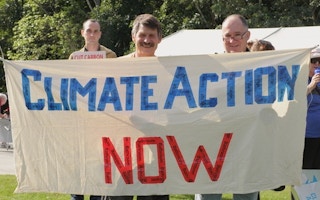A United Nations accord to slow global warming should be short, flexible and long-lasting to avoid complex re-negotiations every few years, according to a document prepared by France before a Paris summit in December.
The deal will also have to ensure that governments do not backtrack on promises to cut greenhouse gas emissions despite a likely lack of sanctions, according to a briefing for climate ministers attending preparatory talks in Paris on July 20-21.
“There is a common understanding that the Paris agreement should be flexible, because it will need to adapt to changing circumstances,” according to the five-page document, seen by Reuters.
“
Behind the scenes we see a real desire to find common ground.
Harald Dovland, a former lead negotiator for Norway
“There is also a shared recognition that Parties should not have to negotiate a new agreement every five or ten years, but rather that the Paris agreement will form the basis for the enhanced implementation,” it said.
The new legal core of the deal “should be short and concise”, it said. By contrast, a draft text covering all aspects of the agreement, stretches to almost 90 pages.
UN Secretary-General Ban Ki-moon last month criticised negotiations, launched almost four years ago in South Africa, as advancing at a “snail’s pace”. About 30 nations will attend the informal Paris talks next week.
The United Nations says national plans for curbing greenhouse gas emissions, submitted as the building blocks of the Paris agreement, will not be enough to limit warming to a UN goal of 2 degrees Celsius (3.6 Fahrenheit) above pre-industrial times.
That means a need for flexibility to ratchet up ambitions in an accord meant to limit greenhouse gases, blamed by the UN’s panel of climate scientists for causing more heat waves, floods and rising sea levels.
Major emitters led by China and the United States have submitted national plans for cuts in greenhouse gases beyond 2020 to the United Nations, as building blocks for the Paris accord. Japan submitted its plan on Friday.
On Wednesday, a report based on talks with negotiators indicated strong will in nations to reach a climate agreement in 2015. Negotiations failed in 2009 at the last attempt at a summit in Copenhagen.
“Behind the scenes we see a real desire to find common ground,” said Harald Dovland, a former lead negotiator for Norway who co-chaired the report by the Centre for Climate and Energy Solutions, a US-based think-tank.

















